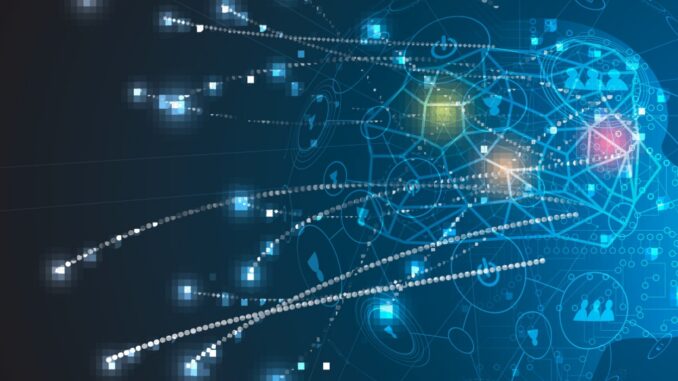
Artificial intelligence (AI) is fostering innovation across various fields by enabling new capabilities, enhancing efficiency,
and driving discoveries that were previously unattainable. Here’s a detailed look at how AI is transforming different sectors:









1. Healthcare
Medical Imaging: AI algorithms can analyze medical images (X-rays, MRIs, CT scans) with high accuracy, aiding in early diagnosis of diseases such as cancer.
Drug Discovery: AI accelerates the drug discovery process by predicting the interactions between drugs and their targets, identifying potential candidates faster than traditional methods.
Personalized Medicine: AI helps tailor treatments to individual patients based on their genetic makeup, lifestyle, and other factors, improving outcomes and reducing side effects.
2. Agriculture
Precision Farming: AI-powered systems monitor crop health, soil conditions, and weather patterns, providing farmers with actionable insights to optimize yield and reduce waste.
Automated Equipment: Autonomous tractors and drones equipped with AI can plant, water, and harvest crops more efficiently than human labor.
Pest and Disease Control: AI models can predict pest infestations and disease outbreaks, enabling timely interventions to protect crops.
3. Environmental Science
Climate Modeling: AI enhances climate models by integrating vast datasets and improving the accuracy of predictions related to climate change and weather patterns.
Wildlife Conservation: AI systems analyze data from cameras, sensors, and satellites to monitor wildlife populations and track endangered species, helping in conservation efforts.
Pollution Control: AI algorithms can detect pollution sources and predict their spread, aiding in the development of strategies to mitigate environmental damage.
4. Finance
Algorithmic Trading: AI-driven trading algorithms analyze market data and execute trades at high speeds, optimizing investment strategies and maximizing returns.
Fraud Detection: AI systems can identify unusual patterns and anomalies in transaction data, helping to detect and prevent fraudulent activities.
Customer Service: AI chatbots and virtual assistants provide personalized financial advice and support, improving customer experience and operational efficiency.
5. Manufacturing
Predictive Maintenance: AI-powered predictive maintenance systems monitor machinery and predict failures before they occur, reducing downtime and maintenance costs.
Quality Control: AI systems analyze production processes and outputs in real-time, identifying defects and ensuring high-quality standards.
Supply Chain Optimization: AI optimizes supply chain operations by forecasting demand, managing inventory, and improving logistics.
6. Transportation
Autonomous Vehicles: AI is the backbone of self-driving technology, enabling vehicles to navigate, avoid obstacles, and make real-time decisions, enhancing safety and efficiency.
Traffic Management: AI systems analyze traffic patterns and control traffic signals to reduce congestion and improve traffic flow.
Logistics and Delivery: AI optimizes route planning and delivery schedules, reducing costs and improving efficiency in logistics and supply chain management.
7. Education
Personalized Learning: AI-driven educational platforms provide personalized learning experiences, adapting to the needs and progress of each student.
Administrative Efficiency: AI automates administrative tasks such as grading, scheduling, and admissions, allowing educators to focus more on teaching.
Content Creation: AI tools help create educational content, including interactive lessons, simulations, and assessments.
8. Entertainment
Content Recommendation: AI algorithms analyze user preferences and behavior to recommend movies, music, books, and other content, enhancing user experience.
Content Creation: AI is used to generate music, write scripts, and even create visual art, expanding the possibilities of creative expression.
Gaming: AI enhances game development by creating intelligent, adaptive opponents and personalized gaming experiences.
9. Retail
Customer Insights: AI analyzes customer data to provide insights into buying behavior, helping retailers tailor their marketing strategies and improve customer engagement.
Inventory Management: AI systems optimize inventory levels by predicting demand and managing stock more efficiently.
Personalized Shopping: AI-powered recommendation engines offer personalized product suggestions, enhancing the shopping experience.
10. Security
Surveillance: AI systems analyze video footage from surveillance cameras to detect suspicious activities and enhance security measures.
Cybersecurity: AI algorithms identify and respond to cyber threats in real-time, protecting sensitive data and systems from attacks.
Risk Assessment: AI helps assess risks in various contexts, from national security to financial investments, enabling better decision-making.
AI’s role in fostering innovation is multifaceted and transformative. By enabling more efficient processes, uncovering new insights, and creating smarter solutions, AI is driving progress and opening up new possibilities in numerous fields.

Leave a Reply